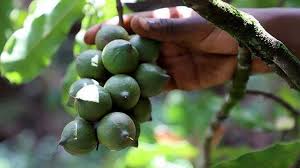Fudrikali, Uganda — In a promising development for local farmers, the Fudrikali community is set to receive a significant agricultural boost aimed at revitalizing food production, creating jobs, and strengthening climate resilience in the area.
An initiative is underway to provide Fudrikali farmers with tools, training, and access to water, helping them improve yields and livelihoods.
The project emphasizes soil conservation, climate-smart irrigation, and agro-extension services, with support from government and development partners.
Key interventions are expected to include small-scale irrigation systems, improved seed varieties, and community training programs.
Fudrikali, like many rural communities in Uganda, faces agricultural challenges such as erratic rainfall, soil erosion, and limited market access. With farming as the primary source of income, any upgrade in productivity promises better food security and household income.
Increased food production through more reliable water access and improved seeds.
Year-round farming instead of seasonal planting only.
Training for farmers on climate-smart practices, value addition, and post-harvest handling.
Empowerment of youth and women, opening up new roles in farming and agribusiness.
Uganda is scaling up agro-infrastructure across the country. National programs are building irrigation schemes, value-chain linkages, and model farms to boost income and boost productivity ([turn0search7], [turn0search8]).
This aligns with Uganda’s broader vision—reaching 420,000 hectares under irrigation by 2035 and supporting initiatives like the Four-Acre model that blends food and cash crop farming for sustainable income growth ([turn0search7]).
Other regional projects, like community water reservoirs and FAO-assisted flood-control systems in neighboring countries, have already shown success in turning disasters into opportunities and increasing harvests dramatically ([turn0search0]).
To give the story more impact, some helpful additions would include:
Funding source: Who is sponsoring the Fudrikali project—government, NGO, development partner?
Scope and scale: How many farmers or households will benefit?
Timeline: When will infrastructure be completed, training launched, and harvests expected?
Voices of locals: Quotes from farmers or local officials on how they expect the intervention to help.
Challenges and risks: Potential hurdles—soil quality, funding gaps, community uptake.
With proper support, the Fudrikali community stands on the brink of an agricultural transformation. Improved water access, better seeds, and training in modern farming methods could mean more food, more income, and more opportunity—especially for women and youth.



